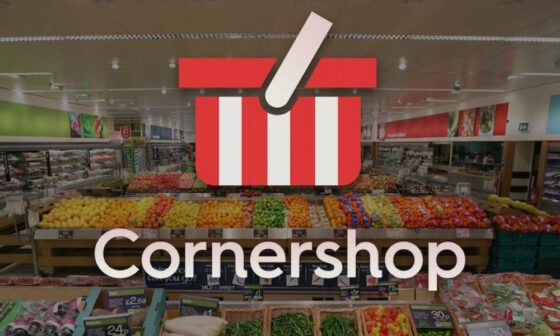A little over a year has passed since lockdowns, social distancing measures, and remote work became our new reality. Traditional businesses experienced a steep learning curve as they were pushed to implement work-from-home strategies and adopt new technologies. While some of these companies have made a temporary switch, an overwhelming majority are considering this to be a long-term shift.
With a remote workforce, it has been challenging for companies to maintain the same level of efficiency as in pre-COVID-19 times. But as business owners and employees found their bearings, SaaS solutions were there to make the transition to digital as seamless as possible.
The scalability of SaaS solutions provides fast-growing businesses with software that adapts to their changing performance requirements. Likewise, the ability to deploy and manage SaaS solutions from any location is essential in a remote work setting as teams can easily collaborate, share information, and communicate with each other.
The numerous benefits of using SaaS solutions can be better understood through three innovative solutions that are making technology more accessible for SMEs in Latin America: Omaira Saucedo (tuGerente), Oriana Fuentes (Emptor), and Florence Frech (Leal).
These incredible entrepreneurs are helping SMEs and corporations successfully navigate the digital landscape, by leveraging data and technology to securely manage their businesses and better understand customers.
Omaira Saucedo, democratizing access to technology for SMEs
Omaira Saucedo Bendek is co-founder and CMO of tuGerente, an end-to-end business management software. She has participated in renowned accelerators like Start-Up Chile and was recognized as one of MIT Tech Review’s Innovators Under 35 in 2020.
Before jumping into technology, Omaira had led the legal area of the largest Chamber of Commerce in Bolivia. She had also joined the Association of Young Entrepreneurs and Professionals, forming part of the board and surrounding herself with inspiring entrepreneurs for several years before taking the leap herself.
From starting a business in the food industry to founding a legaltech, and now running a SaaS startup, Omaira has personally experienced the pain points of building a business without a proper tool for managing a company’s finances.
“It was a tough moment when I realized that my personal finances and that of the business were getting mixed. I had lost control of how much I had spent on supplies, how much I had sold, and, even worse, how much I was earning. Working with cell phone notes or Excel sheets is not sustainable,” commented Omaira.
Together with her co-founders who had also identified this problem in their own companies, they decided to create tuGerente. With their solution, SME entrepreneurs can gain control over their finances and access reports to make better and more strategic decisions for their companies’ growth. The platform also connects companies with other solutions to increase sales such as e-commerce platforms, delivery apps, and payment solutions to help automate their processes.
“We understand that for a business to grow, its leaders must be able to see the big picture. Thanks to the automation of processes when implementing tuGerente, company owners or managers have the opportunity to become more strategic and less operational,” said Omaira.
The global pandemic reinforced the importance of having greater control over the digital management of companies and being interconnected with complementary solutions. For tuGerente this also meant rebuilding processes and designing special workshops for their clients on how to face the uncertainty brought on by the global crisis.
“Our team grew and became stronger. We managed to exceed our readjusted projections for 2020 and that allows us to be highly motivated and confident about the results we can achieve in 2021,” said Omaira.
Omaira explains that the B2B model has its own unique set of challenges. For instance, the B2B sales cycle is longer than that of a B2C model, with clients undergoing a more complex decision-making process. Creating a long-term relationship with a client and gain a deeper understanding of their habits is key when targeting a niche market.
Another great takeaway for Omaira from working with tuGerente’s clients has been the importance of following-up. The B2B client needs and, above all, values a high follow-up rate if they are genuinely interested in the product or service.
“It is just as important to worry about ‘who uses it’ as it is about ‘who pays for it’. In the end, those who will really show if your product worked are those who use it,” said Omaira.
Omaira considers Bolivia to be an excellent market for soft landings and for the initial growth of a startup, as the entry barriers for the majority of industries are low. Yet, she explains that there is still much to be built in the ecosystem to further expand these opportunities.
For example, introducing a solid Entrepreneurship Law or creating synergies between the public sector and other institutions to work on practical solutions with tax incentives that encourage competitiveness in key areas such as technology, science, finance, and logistics.
tuGerente is currently in an internal growth phase fine tuning its technology, customer experience, and collaborations with other solutions. At the same time, they are expanding their operations and raising capital from investment funds that will be essential for their development.
“During the years that we have been with tuGerente in the market, we have shown SMEs that technology is no longer a luxury for a few. We have taken it upon us to democratize a solution for cloud-based financial management for SMEs, which a few years ago was inaccessible,” said Omaira.
Oriana Fuentes, identity and trust in the digital economy
Peruvian-American entrepreneur Oriana Fuentes is the co-founder and COO of Emptor, an automated platform that provides quick and reliable identity verification and background checks.
Oriana was working as an investment banker on Wall Street structuring derivatives and other complex financial products when she decided she wanted to build a business of her own that would create a real impact. Initially, she had considered venturing into solar energy or fintech, but after completing a Master’s in Computer Science with a concentration in Machine Learning she took a different approach and co-founded Emptor.
For Oriana, starting a business in Latin America represents an opportunity to innovate and improve processes, services, and access to jobs. It is also an opportunity to create an organizational culture and foster talent in the region.
In Latin America, a large portion of the population still lacks access to basic services. For instance, 70% of Latin Americans are unbanked. However, that is quickly changing as more digital products and services enter the market. The demand for these services has grown significantly during the pandemic.
According to Oriana, in 2020 more than 40 million people went to the bank for the first time to access government subsidies in Latin America. In a growing digital landscape, the ability to digitally verify the identity of clients becomes indispensable.
“The pandemic has changed how people buy, access financial services, hire and are hired– all of this requires a trusted system and we provide it in an automated and affordable way,” said Oriana.
When Oriana and her partners launched Emptor, they were already ahead of the crowd starting out as a 100% remote company and introducing automatization to an industry where identity and background checks were still being done manually. Emptor focuses on generating a digital report that provides information on the identity and background of a client, including other data such as tax, salary, labor, and educational information.
Among Emptor’s clients are ride-sharing and delivery companies, couriers, fintechs, banks, and supermarkets– or any company that needs to verify the identity of a person to hire them or exchange services, goods, or money.
The applications for this type of technology can be found in multiple industries, including traditional ones, such as verifying prospective tenants in real estate or healthcare professionals on telemedicine platforms, or reducing criminal activity in ports and cargo shipments.
Oriana sees great potential for the identity sector, with solutions eventually evolving into a digital passport for making purchases and accessing financial services like loans and job opportunities.
“Unifying identity and digital trust is essential for the expansion of the new online economy,” said Oriana.
As for future plans, Emptor plans to further establish its presence in eight existing markets and begin collaborating with other identity companies in other continents.
Emptor is currently seeking to expand its team of 49 members to 100, those interested in joining their team can reach out to [email protected].
Florence Frech, a deeper understanding of customers using data
Florence Frech is co-founder and COO of Leal, a customer engagement platform that helps B2C customers truly understand who their customers are through loyalty programs.
Florence had never considered becoming an entrepreneur. She had always liked structure, predictability, and certainty–not necessarily traits that characterize the startup world. Originally from El Salvador, Florence had moved to the US to study finance and built a successful career in banking.
It was when she was completing her Master’s degree in Chicago that she decided to get out of her comfort zone and participate in MIT’s Latam startup competition with a classmate, who today is her co-founder.
“It was March 2014 and we were working with a very different idea and ended up doing very poorly [in the competition],” commented Florence.
Despite losing the competition, Florence gained a new passion for entrepreneurship along with many lessons learned from creating this early version of Leal. The experience also revealed the complementary skills Florence and her co-founder have –him being more of a dreamer, and Florence, more of a doer– that has made their partnership a success.
Driven by the idea to pivot Leal, Florence and Camilo made a trip to Bogota to gain further insight on the Colombian market and to see if there truly was a market for their solution. Florence quickly identified a huge lack of awareness regarding customer engagement strategies in Bogota’s retail market.
She explains that retailers know everything about their business from the “cash register to the back of the store”– their inventory, rush hours, or average ticket size for each location. But when it comes to the customer “in front of the cash register”, they have no notion about who they are serving.
“From our perspective, there was a huge disconnect. There was no data backing up what the retailers were trying to do. And that’s how Leal was born,” said Florence, who had fallen in love with the problem. After completing their MBA, they moved to Bogota and launched Leal in 2016.
Florence attributes this disconnect to the misinformed practice in the region where marketing is reduced to branding and PR when it is much more data-based and involves gaining a deep understanding of the consumer.
“In the US, restaurants like McDonald’s, KFC, Taco Bell, etc. have their own in-house business intelligence or data analytics departments. In Latin America, the very few large chains that have a business intelligence area are the exception to the rule,” explained Florence.
With Leal, Florence and her co-founder want to democratize access to affordable customer engagement solutions that enable business owners to truly understand their customers.
Leal’s customers range from medium-sized companies with 3 to 15 points of sale to larger companies such as Fortune 500s. Their commonality is that they care about understanding their customers and investing in them.
Although Leal initially launched as a B2B model, about a year ago they decided to venture into B2C through a new product called Leal Coins. Similar to a miles program, customers can earn Leal Coins through credit card purchases, paying bills on time, or cashbacks. These coins are a digital asset that can be used at the 700 brands that are part of the Leal network.
“That product skyrocketed in January. We reached 100,000 transactions in Colombia and want to replicate it in other countries,” said Florence.
Currently, Leal operates in Colombia, El Salvador, Guatemala, and Panama, and plans to launch in Mexico this year.
Florence considers that the main challenges that companies face when expanding to a new country are figuring out the regulatory and fiscal aspects, access to top talent, and having on-the-ground insight into a market.
The next step for Leal is to enter the payments ecosystem with force after having launched Leal Coins. They aim to become the go-to everyday payment method for people to pay their electricity bills, gas, cell phone bills, or even movie tickets while saving money.
“The average person in Latin America struggles to make ends meet. He or she lives from paycheck to paycheck. We want to change that, by positioning ourselves as the savings platform of choice for Latin American consumers,” stated Florence.
To learn more about Leal and Florence’s story, check out episode 114 of the Crossing Borders podcast.


